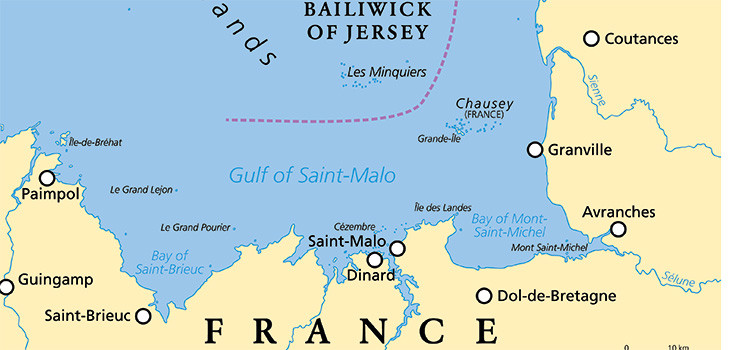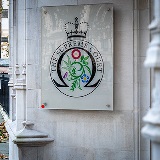*/

Charles Sorensen and Amy Richardson outline the workings and benefits of a dual qualified practice - not least securing tenancy
In September 2011 I met a man called Cyril Whelan. I did not know it at the time, but it was a meeting that would change my life.
I had recently been called to the Bar and was working as an assistant at the Cambridge International Symposium on Economic Crime. Cyril was a delegate and had the profound misfortune to be seated next to me at dinner. Following a conversation that ranged from the Bribery Act 2010 to the talented but inconsistent Leicester City sides of the late 1990s Cyril mentioned that, if it would be of interest, he could make enquiries with his firm in Jersey about the possibility of a work placement. We exchanged details and, a few weeks later, I received an email from Stephen Baker (of Baker & Partners) offering me a placement.
The rest, as they say, is history. Having gone to Jersey for two months, I worked there for the next decade (with an interval to complete pupillage). I completed the Jersey Bar exams and thus became dual qualified.
Qualification in Jersey is not straightforward. Candidates must pass exams in six compulsory subjects, plus a further paper in trusts, company or family law. They must also be employed by a Jersey firm for a minimum period (two years for an advocate) in order to be sworn in. Having to balance the exams with full-time work makes for a stressful existence. However, the course is well taught and administered by the Jersey Institute of Law.
I cannot speak highly enough of my experience in Jersey. As a young lawyer I benefitted from extensive learning and development opportunities. I worked on complex commercial and trusts disputes with a focus on civil fraud and asset recovery. I gained good advocacy experience and, because much of the litigation has an international dimension, had the chance to work with lawyers and clients from across the world.
Jersey has a fused legal profession, so the distinction between solicitors and counsel does not operate as it does in England. Advocates operate in firms and, in many cases, instructions come directly from the client, rather than a firm of solicitors. Working in a firm also means conducting every aspect of the case, not just those which are the traditional preserve of counsel. I learned a great deal from life inside a law firm and draw upon that experience on a daily basis.
Staying in the present, I now have a dual qualified practice from chambers in London. I enjoy the challenge of working across two jurisdictions. Aside from the differences in substantive law, the biggest day-to-day difference is civil procedure (Jersey has the Royal Court Rules, not the Civil Procedure Rules). Fortunately, the differences are substantial so it is not hard to remember which hat I am wearing.
My time in Jersey enabled me to learn a different legal system with a rich and interesting history. In my areas of work, the law draws sufficiently upon common law principles that the different sides of my practice complement each other. At the self-employed Bar, a second jurisdiction is also a good way to attract instructions. As this article may have revealed, I would recommend Jersey to anyone. More specifically, I would advise anyone at the start of their career to think about obtaining some experience abroad (it does not have to be Jersey). This can be a great learning experience, a chance to expand your professional network, a point of difference in future applications – and hopefully a really good time.

In September 2011 I met a man called Cyril Whelan. I did not know it at the time, but it was a meeting that would change my life.
I had recently been called to the Bar and was working as an assistant at the Cambridge International Symposium on Economic Crime. Cyril was a delegate and had the profound misfortune to be seated next to me at dinner. Following a conversation that ranged from the Bribery Act 2010 to the talented but inconsistent Leicester City sides of the late 1990s Cyril mentioned that, if it would be of interest, he could make enquiries with his firm in Jersey about the possibility of a work placement. We exchanged details and, a few weeks later, I received an email from Stephen Baker (of Baker & Partners) offering me a placement.
The rest, as they say, is history. Having gone to Jersey for two months, I worked there for the next decade (with an interval to complete pupillage). I completed the Jersey Bar exams and thus became dual qualified.
Qualification in Jersey is not straightforward. Candidates must pass exams in six compulsory subjects, plus a further paper in trusts, company or family law. They must also be employed by a Jersey firm for a minimum period (two years for an advocate) in order to be sworn in. Having to balance the exams with full-time work makes for a stressful existence. However, the course is well taught and administered by the Jersey Institute of Law.
I cannot speak highly enough of my experience in Jersey. As a young lawyer I benefitted from extensive learning and development opportunities. I worked on complex commercial and trusts disputes with a focus on civil fraud and asset recovery. I gained good advocacy experience and, because much of the litigation has an international dimension, had the chance to work with lawyers and clients from across the world.
Jersey has a fused legal profession, so the distinction between solicitors and counsel does not operate as it does in England. Advocates operate in firms and, in many cases, instructions come directly from the client, rather than a firm of solicitors. Working in a firm also means conducting every aspect of the case, not just those which are the traditional preserve of counsel. I learned a great deal from life inside a law firm and draw upon that experience on a daily basis.
Staying in the present, I now have a dual qualified practice from chambers in London. I enjoy the challenge of working across two jurisdictions. Aside from the differences in substantive law, the biggest day-to-day difference is civil procedure (Jersey has the Royal Court Rules, not the Civil Procedure Rules). Fortunately, the differences are substantial so it is not hard to remember which hat I am wearing.
My time in Jersey enabled me to learn a different legal system with a rich and interesting history. In my areas of work, the law draws sufficiently upon common law principles that the different sides of my practice complement each other. At the self-employed Bar, a second jurisdiction is also a good way to attract instructions. As this article may have revealed, I would recommend Jersey to anyone. More specifically, I would advise anyone at the start of their career to think about obtaining some experience abroad (it does not have to be Jersey). This can be a great learning experience, a chance to expand your professional network, a point of difference in future applications – and hopefully a really good time.
Charles Sorensen and Amy Richardson outline the workings and benefits of a dual qualified practice - not least securing tenancy

There is no typical day in the life as a Supreme Court judicial assistant, says Josephine Gillingwater, and that’s what makes the role so enjoyably diverse

Ever wondered what a pupillage is like at the CPS? This Q and A provides an insight into the training, experience and next steps

What meaningful steps can you take in 2026 to advance your legal career? asks Thomas Cowan of St Pauls Chambers

Q and A with criminal barrister Nick Murphy, who moved to New Park Court Chambers on the North Eastern Circuit in search of a better work-life balance

What’s it really like to work in the National Crime Agency’s in-house legal team? TM, a lawyer in the NCA’s Financial Disruptions Litigation team, shares a day in her life

By the Chartered Governance Institute UK Ireland